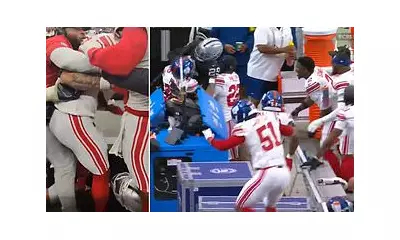
In an exclusive revelation that's sending ripples through the Australian Football League community, bisexual star Mitch Brown has broken his silence about reaching out to Izak Rankine following the Adelaide forward's controversial homophobic slur incident.
The heartfelt conversation between the two players occurred after Rankine received a four-match ban for using discriminatory language during the Crows' defeat against St Kilda in Round 21. Brown, one of the few openly bisexual players in the AFL, demonstrated remarkable compassion by initiating contact with his fellow professional.
'He's Not a Bad Person': Brown's Perspective
"I reached out to him after it happened," Brown disclosed to Sports Confidential. "I just wanted to make sure he was okay. People make mistakes and he's not a bad person."
The 34-year-old former Essendon and Melbourne player emphasized the importance of education over punishment, suggesting that Rankine's actions stemmed from ignorance rather than malice. Brown's approach highlights a growing movement within professional sports towards restorative justice and meaningful dialogue.
AFL's Ongoing Inclusion Journey
This incident occurs against the backdrop of the AFL's continued efforts to promote inclusivity and diversity within the sport. The league has implemented various programs aimed at educating players about appropriate language and behaviour, particularly regarding LGBTQ+ communities.
Brown, who came out as bisexual in 2022, has become an influential voice in these discussions, advocating for greater understanding and acceptance while acknowledging that change takes time.
Community Reaction and Path Forward
The football community has largely praised Brown's compassionate response, seeing it as a model for how to address similar situations in the future. Rather than public shaming, Brown chose private conversation - a approach that many believe leads to more genuine change.
As Rankine serves his suspension and undergoes education programs, the AFL continues to balance disciplinary action with opportunities for growth and learning. Brown's intervention represents a significant step toward creating a more inclusive environment where mistakes can become teachable moments rather than career-defining incidents.





